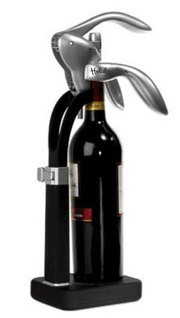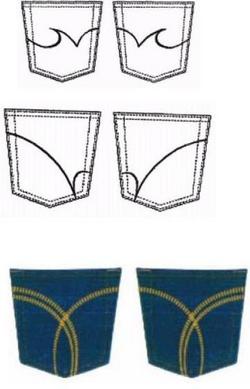Los Angeles, CA – Trademark attorneys for Metrokane sought review and reversal, at the Federal District Court in Los Angeles, of the final decision of the Trademark Trial and Appeal Board (TTAB) of the United States Patent and Trademark Office (USPTO) cancelling the registration of its Houdini trademark. Metrokane’s Houdini trademark was registered with the USPTO on February 11, 2003, for use on lever-pull corkscrews and other bar accessories.
 In 2005, Defendant Houdini, Inc. filed applications with the USPTO to register its “Houdini” mark for use in connection with, among other things, corkscrews, coasters, wine glasses, and gift baskets. The Trademark Examining Attorney rejected Defendant’s applications because its Houdini marks were likely to cause confusion with Metrokane’s prior registration. In response, Defendant filed with the TTAB a Petition to Cancel Metrokane’s trademark registration, wherein Defendant claimed prior use of the Houdini mark in connection with its gift basket design. The TTAB, in turn, granted the Defendant’s petition for cancellation and cancelled Metrokane’s trademark registration.
In 2005, Defendant Houdini, Inc. filed applications with the USPTO to register its “Houdini” mark for use in connection with, among other things, corkscrews, coasters, wine glasses, and gift baskets. The Trademark Examining Attorney rejected Defendant’s applications because its Houdini marks were likely to cause confusion with Metrokane’s prior registration. In response, Defendant filed with the TTAB a Petition to Cancel Metrokane’s trademark registration, wherein Defendant claimed prior use of the Houdini mark in connection with its gift basket design. The TTAB, in turn, granted the Defendant’s petition for cancellation and cancelled Metrokane’s trademark registration.
Metrokane, through its complaint filed with the federal district court, now seeks de novo review of the TTAB’s decision, pursuant to 15 U.S.C. § 1071(b). Metrokane contends that the TTAB decision was incorrect because: (1) the TTAB incorrectly rejected Metrokane’s laches defense, (2) the TTAB incorrectly accepted Defendant’s unsubstantiated allegations of prior use, and (3) the TTAB incorrectly found a likelihood of confusion. The case is titled Metrokane, Inc. v. Houdini, Inc., CV 08-05428 DSF (C.D. Cal. 2008).
 Los Angeles Intellectual Property Trademark Attorney Blog
Los Angeles Intellectual Property Trademark Attorney Blog



